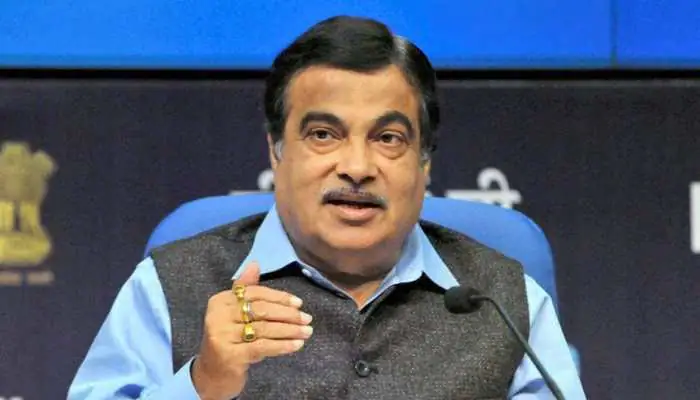“The broad contours of the pilot programme are — victims entitled to cashless treatment up to a maximum of Rs 1.5 lakh per accident per person for a maximum period of 7 days from date of the accident,” Nitin Gadkari said while addressing a press conference.
The government will come up with a modified scheme by March this year
New Delhi: The government will come up with a modified scheme by March to provide cashless treatment for road accident victims nationwide, under which they will be entitled to a maximum amount of Rs 1.5 lakh per accident per person, Union minister Nitin Gadkari said on Tuesday.
According to Gadkari, the scheme will be applicable to all road accidents caused by the use of motor vehicles on any category of road.
The National Health Authority (NHA) shall be the implementing agency for the programme, in coordination with police, hospitals and State Health Agency etc.
The programme will be implemented through an IT platform, combining the functionalities of the e-Detailed Accident Report (eDAR) application of the Ministry of Road Transport and Highways and the Transaction Management System of NHA.
“The broad contours of the pilot programme are — victims entitled to cashless treatment up to a maximum of Rs 1.5 lakh per accident per person for a maximum period of 7 days from date of the accident,” Gadkari said while addressing a press conference.
The government will come up with a modified scheme by March this year.
“We have started a new scheme – Cashless Treatment. Immediately after an accident occurs, within 24 hours, when the information goes to the Police, we will provide expenses for seven-day treatment of the patient who gets admitted or a maximum of up to Rs 1.5 Lakhs for treatment. We will also provide Rs two lakh for the deceased in hit-and-run cases,” said the Union Minister of Road Transport and Highways.
He also underlined that the government’s top priority is road safety, citing the alarming statistic that nearly 1.80 lakh people lost their lives in road accidents in 2024. Of these, 30,000 fatalities were due to not wearing helmets, Gadkari added.
“In the meeting, the first priority is for road safety and in the year 2024, 1.80 lakh deaths have occurred in road safety. 30,000 people have died because of not wearing helmets. The second serious thing is that 66% of accidents have occurred in people between the ages of 18 to 34,” Gadkari added.
Gadkari further highlighted the deaths of 10,000 children in road accidents caused by inadequate arrangements at entry and exit points near educational institutions, such as schools and colleges.
“10,000 children have died due to a lack of proper arrangement at the exit-entry point in front of our schools and colleges. Rules have also been made for the autorickshaws and minibuses for schools as there have been significant number of deaths due to this. After identifying all the black spots, everyone decided together that we would try to reduce it,” he said.
The announcement followed a meeting chaired by Gadkari with Transport Ministers from all states and union territories at Bharat Mandapam in Delhi on Tuesday.
The meeting aimed to facilitate collaborative efforts between the union and state governments and to discuss transportation-related policies.
On March 14, 2024, the ministry of road transport and highways (MoRTH) had launched a pilot programme to provide cashless treatment to road accident victims.
The pilot programme — initiated in Chandigarh — was aimed at establishing an ecosystem for providing timely medical care to the victims of road accidents, including during the golden hour.
The pilot project was later expanded to six states.
The road transport and highways minister also said the government is studying labour laws to frame a policy for fixing working hours for commercial drivers, on the lines of pilots, as driver fatigue is resulting in fatal road crashes, Gadkari said, adding that India is facing a shortage of 22 lakh drivers.
MoRTH organised a two-day workshop on January 6, and 7, 2025 to holistically deliberate issues, solutions and next steps to be taken to help drive transformation in India’s road transport sector.
During the two-day workshop, accelerating implementation of Vehicle Scrapping Policy, pan-India adoption of PUCC 2.0, timelines for introduction of BS-VII norms were discussed, along with expected reduction in pollution with the norms.
Gadkari also launched the scheme for pan-India setup of Driver Training Institutes (DTI) which provides incentives for setting up DTIs and additional incentives for integrated infrastructure of ATSs and DTIs.
The minister stressed on the introduction of specific regulations and guidelines for improving E-Rickshaw safety, given the proliferation of e-rickshaws across the country.
Gadkari said deliberations were done for introduction of Advanced Driver Assistance System (ADAS) for trucks and strict enforcement of retro reflective tape for transport vehicle safety.
Implementation of monitoring centers & vehicle location tracking devices (VLTD) for safety of women and children were also discussed.
The meeting also discussed the launch and integration of all faceless services by the end of March 2025.
“Further, a Committee of Secretaries with representatives from States, MoRTH and NIC will work towards standardization of faceless services modules, document standardization for registration,” he added.

